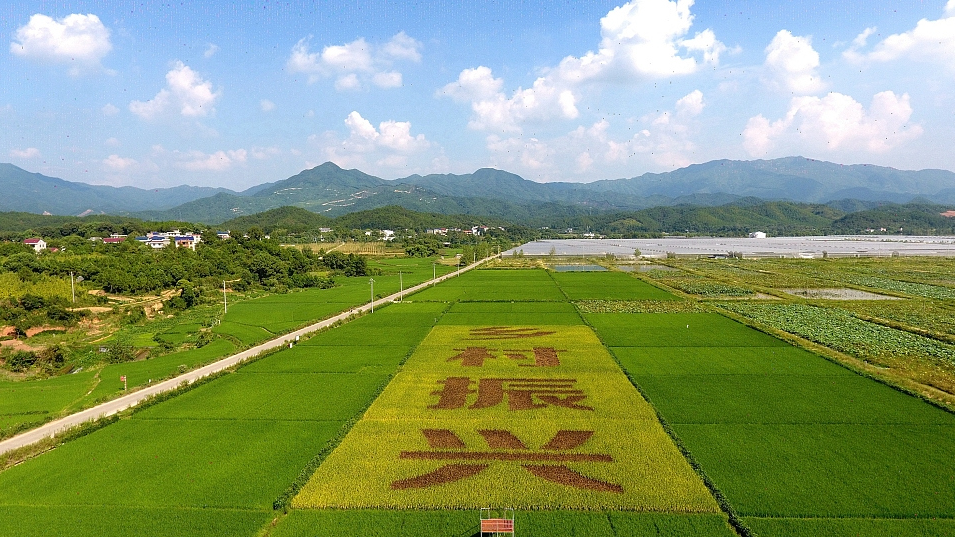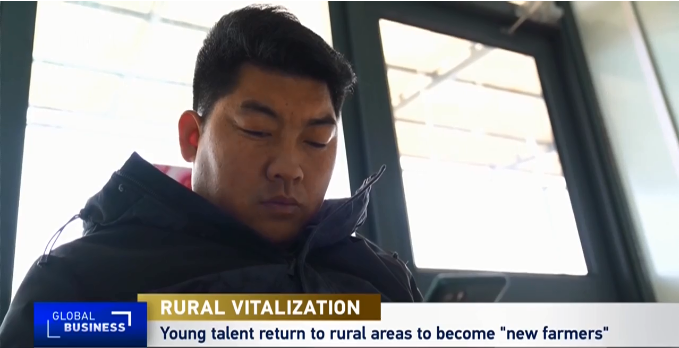02:30

For those born in rural areas, finding success in the city through education and hard work was once a point of pride. Returning home was a last resort. But times have changed.
Since the rural vitalization strategy was first proposed in 2017 as a key step in accelerating the modernization of agriculture and rural areas, a series of policies charting its roadmap has been rolled out. Attracting talented young Chinese to settle in rural areas to boost local economies was earmarked as a priority, particularly after China scored a complete victory in poverty alleviation in 2021. According to the Ministry of Agriculture and Rural Affairs, 11.2 million people returned to the countryside in 2021 to launch businesses and engage in innovation.

Local villagers make use of a paddy field to spell the Chinese characters of "rural revitalization" in Jishui County, east China's Jiangxi Province, August 13, 2018. /CFP
Local villagers make use of a paddy field to spell the Chinese characters of "rural revitalization" in Jishui County, east China's Jiangxi Province, August 13, 2018. /CFP
Doctor of Sociology Lv Dewen points out that the decision to return to rural areas is highly dependent on the availability of local resources and market opportunities. To attract more fresh blood, local governments rolled out a series of measures that includes tax credits and exemptions, start-up funding and loans, and subsidized training.
Farmer Zhao Lei said that after he returned to his village in 2015, the local agriculture department frequently contacted him to offer help. Agricultural experts from various sectors came to his village regularly to deliver lectures and offer consultation.

Farmer Zhao Lei in Xijiangzhai Village, Kaifeng City, central China's Henan Province. /CGTN
Farmer Zhao Lei in Xijiangzhai Village, Kaifeng City, central China's Henan Province. /CGTN
Modernized rural infrastructure, financial support and digital upgrades foster an optimal environment for returnees seeking to boost local economies. Last year, slightly more than half the entrepreneurial projects in rural areas leveraged livestreaming and other online strategies to maximize sales. This year, the Chinese government published "No. 1 Central Document," which calls for greater efforts in developing digital villages by pushing for smart agriculture and empowering rural public services with digital technologies.
As more favorable policies are introduced and rural infrastructure improves, more migrant workers, high-skilled workers and youngsters will apply their professional skills and novel ideas to bring new vitality to China's rural economic development.
Script writer & on-camera reporter: Xu Jinhui
Video editor: Zeng Hongen
Cover image: Yin Yating
Producer: Li Tianfu
Chief editor: Lin Dongwei
Supervisor: Li Chunxia

